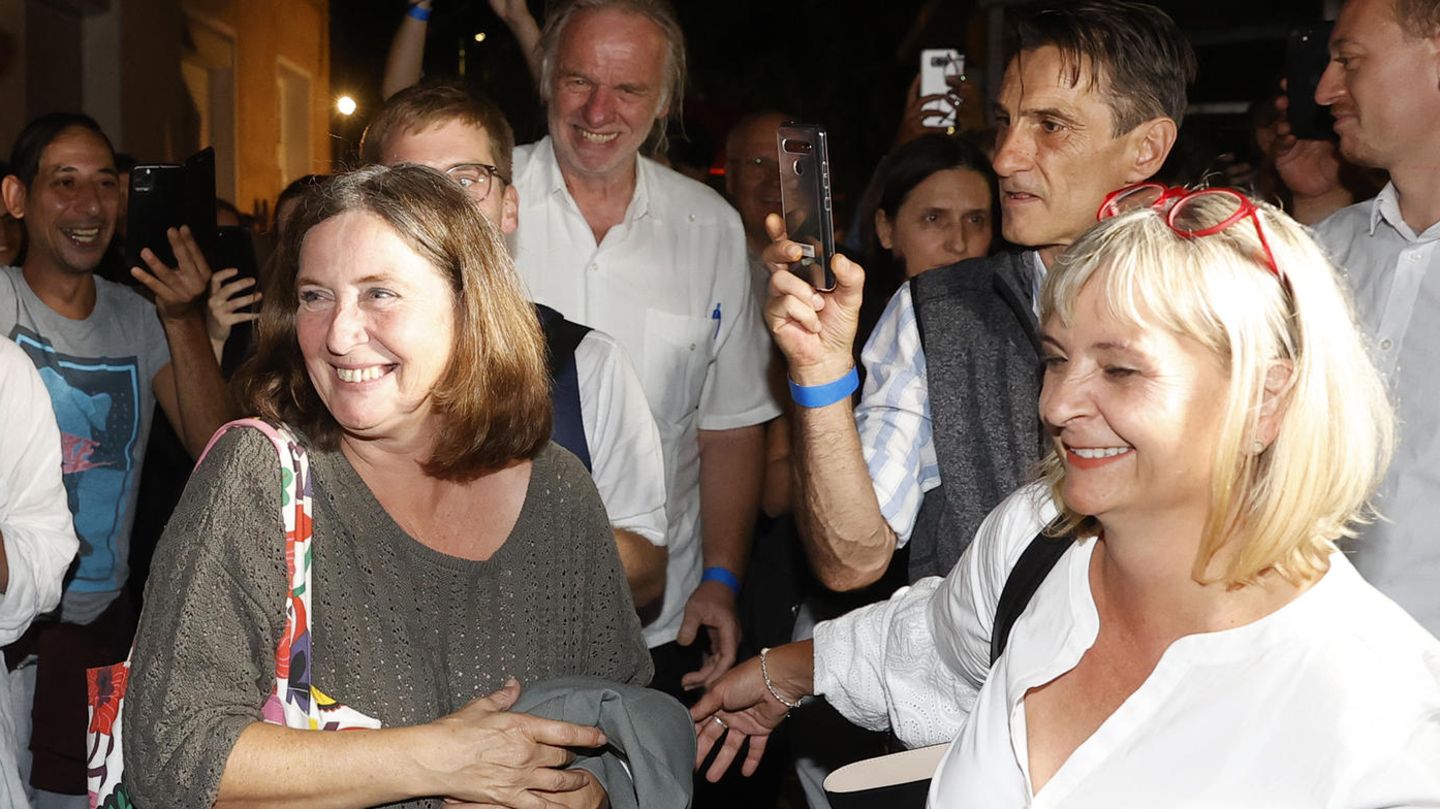Left shift in conservative Austria of all places: In the Styrian capital Graz, the Communist Party of Austria has appointed the new mayor. And in Upper Austria a protest party made it into the state parliament. How could this happen?
2021 is not just a super election year. September 26th was also a super election day. Not only in Germany, several elections took place, also in Austria citizens were allowed to vote in state and regional elections. However, these would hardly be of interest if the outcome of the election were not so explosive.
In Upper Austria, the conservative ÖVP won, but a protest party also managed to make it into the state parliament. The anti-vaccination “Human-Freedom-Basic Rights” (MFG) was only founded in February and was relatively unknown until a few weeks ago. Your party program is a criticism of the government’s current corona requirements. Federal party chairman Michael Brunner announced in a radio interview with ORF that his party would run in further state parliament and national council elections.
When health influences voting decisions
Scientists are surprised by the success of the MFG, which is also an indication of a challenge across the country. “The success of the MFG list reveals a widespread distrust of science in Austria,” writes, for example, “”. The result also shows a clear connection between vaccination skepticism in the country and party preference: Both MFG and FPÖ scored particularly well in communities with low vaccination coverage. In comparison with other western countries, most of the people who are against vaccinations live in Austria. In the state itself, this grouping is again concentrated on the federal state of Upper Austria. When it comes to vaccination coverage, the state is at the bottom – not only when it comes to vaccination against the coronavirus.
MFG took advantage of this. But not only them: If the FPÖ in particular focused on xenophobia before the start of the pandemic, this electoral strategy “content was dropped and replaced by the rejection of the corona measures,” the paper analyzes. The sociologist Christoph Reinprecht therefore describes Austria as “still only partially enlightened country in the sense of the classic Enlightenment term”.
The protest party MFG owes its success not only to the vaccination skepticism in the population. Political scientist Kathrin Steiner-Hämmerle emphasized that a large part of the information exchange takes place in closed groups. MFG topics were discussed especially on Telegram. “You shouldn’t underestimate that: there is obviously already a parallel public – but it is not very public.” It remains to be seen whether the party will continue to be successful in the future. However, it will not do with Corona-skeptical issues in the long term, because at some point it will be this pandemic will also be over.
From right to left
In addition to the state elections in Upper Austria, regional elections were held on Sunday in the Styrian capital Graz. This election result also made headlines beyond the borders of the country. With an increase of almost nine percentage points, the Communist Party of Austria (KPÖ) has replaced the conservative ÖVP as the strongest party in the country’s second largest city. This prompted the long-time mayor Siegfried Nagl to announce his retirement that same evening. “I will withdraw my protecting hand, but also my helping hand from Graz,” he said. His successor could now come from the Communist Party. The Greens were also able to look forward to gains that evening, while the right-wing populist FPÖ lost votes.
The result can be seen as a clear shift to the left, even if the party in the city has always had a large part of the electorate behind it. Graz is thus an Austrian original, because at the national level, even under the Soviet occupation after the Second World War, the KPÖ was barely able to capture more than five percent of the vote. So what made the communists win?
Party against precarious housing
“Not individual milestones, but the long-term processing of the apartment issue was decisive,” says the political scientist Manès Weisskircher of the “Standard”. Years ago, the predecessor of the current city councilor, Elke Kahr, showed himself to be close to the citizen, visited residents in poor living conditions and set up a rental emergency number.
The party gained political credibility by giving up two thirds of their salary of 5500 euros in the Graz city council. Otherwise you quickly lose sight of the concerns of the population, said Kahr. The money has been collected in a social fund since 1998 and made available in the event of dismissals and eviction suits. In addition, the Graz communists called for party funding to be cut. Bit by bit, the party has expanded its social policy over the past few decades. That is also reflected. In it, the party demands, among other things, a minimum wage of 15 euros per hour and a reduction in working hours.
Political scientists doubt that the shift to the left could spread through the entire country in the future. Long-term work is necessary for this. However, the success of the KPÖ is a reason for left-wing actors in other parts of the country to question themselves and their work. “Ultimately, electoral successes for far-right parties are not a law of nature. If left-wing actors fail elsewhere, then partly because of themselves,” said political scientist Manès Weisskircher.
David William is a talented author who has made a name for himself in the world of writing. He is a professional author who writes on a wide range of topics, from general interest to opinion news. David is currently working as a writer at 24 hours worlds where he brings his unique perspective and in-depth research to his articles, making them both informative and engaging.




